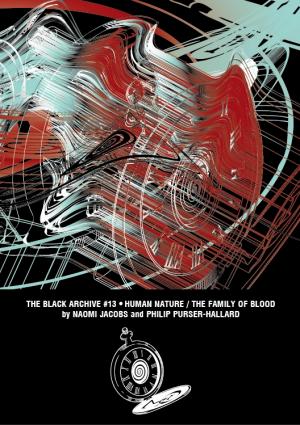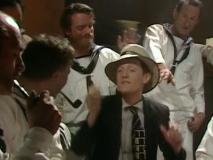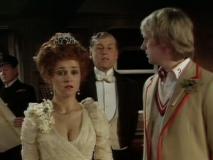Black Archive #13: Human Nature / Family of Blood
Sunday, 3 September 2017 - Reported by Marcus
 The latest issue from the Dark Archive, looking at the production of the Tenth Doctor story Human Nature / Family of Blood has just been released.
The latest issue from the Dark Archive, looking at the production of the Tenth Doctor story Human Nature / Family of Blood has just been released. The book details the production of the Series Three story. It is available in paperback or in digital form from Obverse Books.
Even in one of 21st-century Doctor Who’s more complex seasons, Human Nature / The Family of Blood (2007) is a standout story: a narrative with mythic ambitions, which illuminates the true nature and character of the Doctor through the courage and failings of his unknowing human alter ego, John Smith.
Uniquely, the story is also an adaptation of an original Doctor Who novel, scriptwriter Paul Cornell’s Human Nature (1996). Though no specific incidents, and few characters, remain the same, the adaptation is remarkably faithful given the given the differing demands of context, era, and medium. Both versions deal with war and trauma, humanity and the alien, school, and family, though sometimes with differing emphases. In particular, the treatment of pacifism and the claims of World War I to be a ‘just war’ changes significantly.
As the story of a ‘god’ who becomes human and must sacrifice his life to save the world, the two-parter also opens up questions of theology unusual in Doctor Who, which adds an extra dimension to the overall season arc, and to the development of the character of David Tennant’s Doctor.
Uniquely, the story is also an adaptation of an original Doctor Who novel, scriptwriter Paul Cornell’s Human Nature (1996). Though no specific incidents, and few characters, remain the same, the adaptation is remarkably faithful given the given the differing demands of context, era, and medium. Both versions deal with war and trauma, humanity and the alien, school, and family, though sometimes with differing emphases. In particular, the treatment of pacifism and the claims of World War I to be a ‘just war’ changes significantly.
As the story of a ‘god’ who becomes human and must sacrifice his life to save the world, the two-parter also opens up questions of theology unusual in Doctor Who, which adds an extra dimension to the overall season arc, and to the development of the character of David Tennant’s Doctor.















